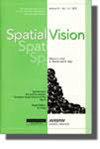THE CHALLENGES AND SOLUTIONS OF TRANSLATING PUNS AND JOKES FROM ENGLISH TO INDONESIAN
引用次数: 1
Abstract
Translating puns and jokes is often perceived as the mostchallenging task in translation field. The difficulties oftranslating puns emerge because the sense of humor in thepuns and jokes can be disappeared after being translated intothe target language. This study aims to see the challenges thatEnglish Education Department’s students have as well as thesolutions they can implement in translating puns from Englishto Indonesian. This study applies qualitative method withcontent analysis technique. The data were generated from thetranslation products of puns translated by English EducationDepartment students. The data were then analyzed by usingreader-response technique to find out the readers’ responsetoward the puns and jokes that have been translated intoIndonesian. After analyzing the data, the results indicate thatmost students experienced difficulties to translate the punsfrom English to Indonesia. The biggest challenge that thestudents encountered is not only in translating the culturalhumor, but also in translating the linguistic humor and theuniversal humor. Students who implement free translationmethod and domesticating ideology were able to produce abetter target language oriented translation to let the readersunderstand the humor behind the puns and the jokes they read.These findings suggest that the solution to the challenge oftranslating puns is that students should use free translation anddomesticating ideology in translating cultural text, such aspuns and jokes.双关语和笑话从英语翻译成印尼语的挑战和解决办法
双关语和笑话的翻译通常被认为是翻译领域最具挑战性的任务。双关语翻译的难点在于,在翻译成目的语后,双关语和笑话中的幽默感可能会消失。本研究旨在了解英语教育系学生在将英语双关语翻译成印尼语时所面临的挑战以及他们可以实施的解决方案。本研究采用定性分析与内容分析相结合的方法。数据来源于英语教育系学生翻译的双关语翻译产品。然后使用读者反应技术对数据进行分析,以找出读者对翻译成印尼语的双关语和笑话的反应。在对数据进行分析后,结果表明,大多数学生在将英语双关语翻译成印度尼西亚语时遇到了困难。学生们面临的最大挑战不仅是文化幽默的翻译,还有语言幽默和普遍幽默的翻译。运用意译法和归化思想的学生能够更好地进行以目的语为导向的翻译,让读者理解他们所读到的双关语和笑话背后的幽默。这些研究结果表明,解决双关语翻译挑战的方法是学生在翻译双关语和笑话等文化文本时使用意译和归化意识形态。
本文章由计算机程序翻译,如有差异,请以英文原文为准。
求助全文
约1分钟内获得全文
求助全文

 求助内容:
求助内容: 应助结果提醒方式:
应助结果提醒方式:


